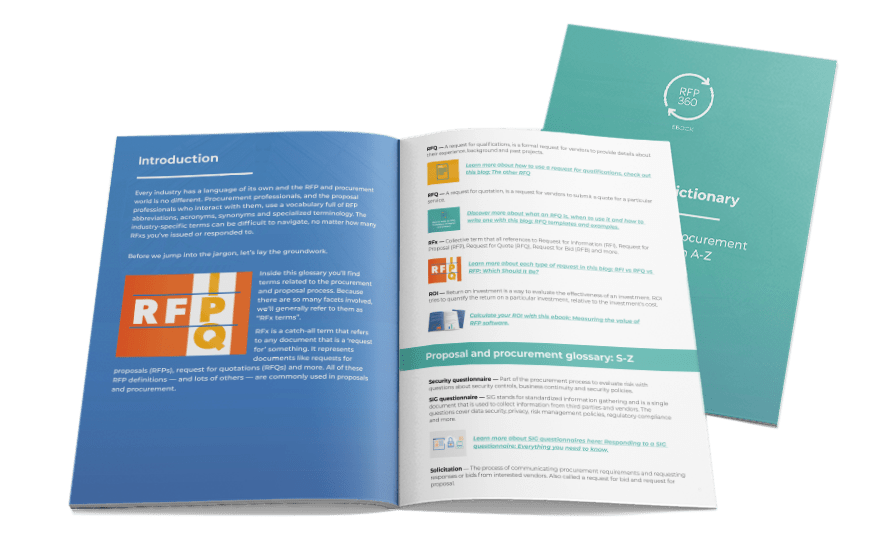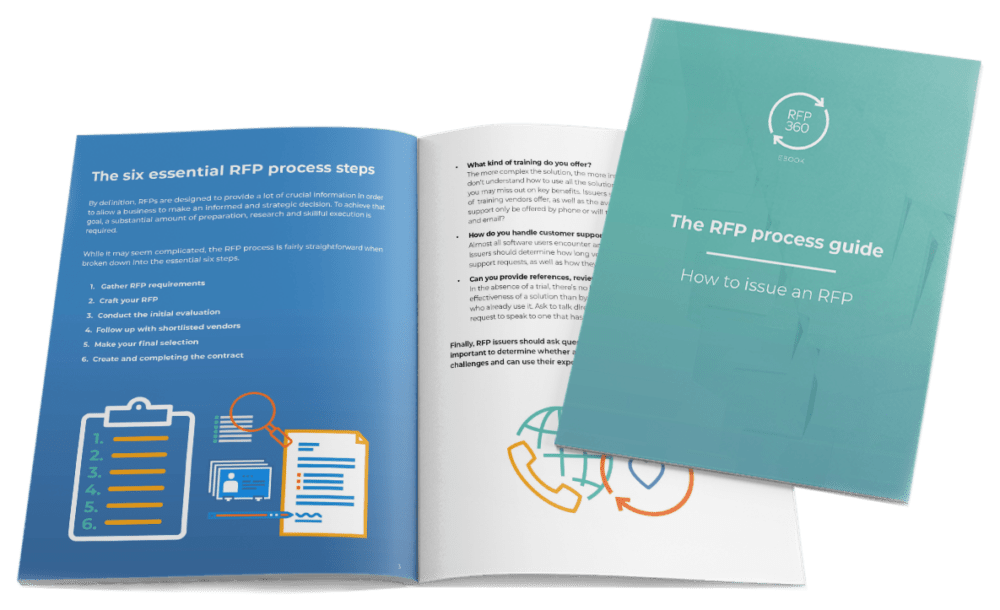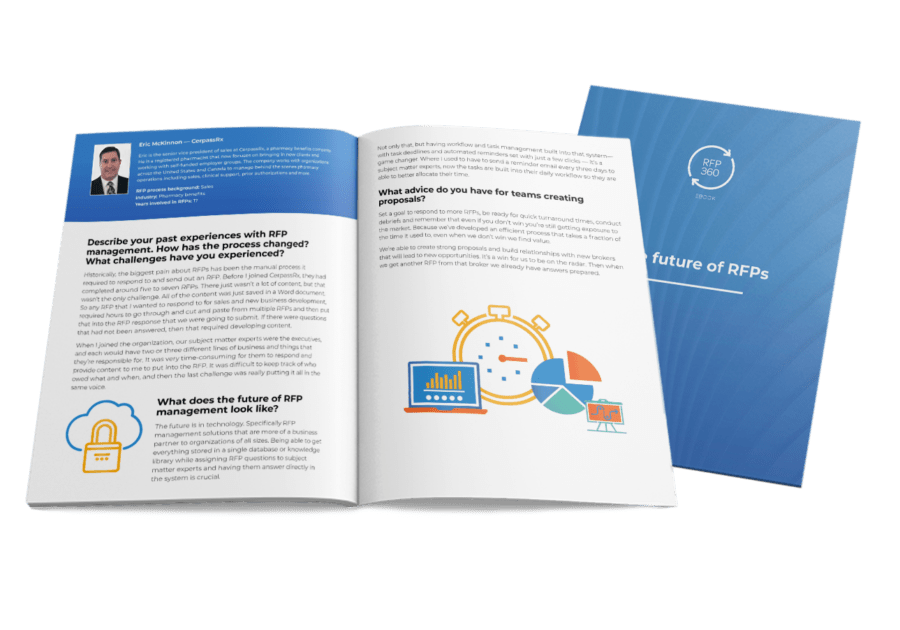Interested in a procurement career, but not sure where to start? You’re not alone. Navigating and understanding the numerous titles, roles and responsibilities in the field is difficult. And, it’s no wonder — it seems that each organization defines their procurement department and roles differently.
By the end of this post, you’ll have all of the information you need to know to undertake or advance your procurement career. To begin, I’ll offer an overview of the procurement department. Next, I’ll highlight five core procurement careers and discuss their responsibilities, expected education and required skill set for success. In addition, the post will offer resources to advance to the next level.
An overview of the procurement department
5 procurement roles to explore
- Procurement analyst
- Procurement manager
- Strategic sourcing manager
- Director of procurement
- Chief procurement officer
An overview of the procurement department
Before we dig into all the details of each procurement career, let’s discuss what the procurement department is, its role in the business and the duties they perform.
Procurement department definition
The procurement department is the office responsible for serving the internal stakeholders by acquiring the supplies, goods and services required to accomplish the goals of the business. One of the department’s primary objectives is to decrease costs, maximize value and reduce supply chain risk.
As a part of their responsibilities, they develop procurement policies, issue RFPs, establish product specifications, perform product and service market research, explore value analysis and negotiate contracts.
Procurement duties fall into the larger supply chain management function. In addition to procurement, the supply chain also includes manufacturing, inventory management, fulfillment and logistics.
5 procurement roles to explore
From entry level to executive leadership, when it comes to procurement careers, there’s a wide variety of options. Likewise, there’s an impressive array of skills and duties performed in these roles. Here we’ll provide an overview of 5 key positions.
Procurement analyst
If you’re just taking your first steps on the procurement career path, look for a role as a procurement analyst. The position is entry level and a good way gain experience and develop an understanding of how the procurement team supports the business.
Often, a procurement analyst works closely or comes in contact with colleagues in finance, legal, IT, research and development, customer success and more. This range of exposure not only provides value to the procurement team, but it also expands your professional network.
Alternate titles with similar responsibilities: Procurement agent, procurement assistant, procurement administrator, procurement or purchasing specialist, procurement associate and junior buyer.
Responsibilities
As a procurement analyst you might participate in a variety of functions or specialize in a particular area. For example, these kinds of duties could include vendor analysis and communication, RFP process optimization, prospective vendor discovery and onboarding, cost forecasting and historic procurement cost reviews.
Skills
Hard skills
-
- Contract and report analysis
- Technology experience
- Reporting systems
- Communication software
- Enterprise resource planning (ERP) systems
- Vendor performance tracking and communication
Soft skills
-
- Communication, collaboration and networking
- Adaptability and time management
- Analytical thinking
- Attention to detail
Education
This entry-level position is generally open to professionals of all education levels from high school degree or GED and higher. It is common for those with business, finance, economics or general studies associate’s or bachelor’s degrees to start their procurement career in this role.
Resources for further exploration and education
Explore industries with the most supply chain and procurement roles – Interested in the procurement career path, but need to narrow it down more? Check out this list of supply chain-focused industries and the available roles to see what might interest you.
Talk the talk with this RFx glossary – Download this glossary to learn key procurement industry terms, acronyms and jargon.

Start building your procurement skills with CIPS – The Chartered Institute of Procurement and Supply is one of the largest industry associations around. Consequently, they offer a wealth of educational and career development resources. Luckily, you can join as a studying member to access information designed to build foundational knowledge.
Procurement manager
The definition and duties of a procurement manager vary greatly from one business to another. However, they are generally the go-to person for initiating and managing procurement projects. Beyond that, their day-to-day responsibilities will vary greatly based on the structure and size of the procurement department.
In this role, you’ll work closely with internal teams and vendors to ensure that each procurement project is a success. Typically, the bulk of these projects are tactical and transactional. You’ll also have the opportunity to hone your skills, specialize in a particular area and reinforce your value to the business as an individual contributor.
Alternate titles with similar responsibilities: Procurement coordinator, purchasing manager, procurement engineer and category manager.
Responsibilities
In your role as a procurement manager, expect responsibilities to vary depending on the needs of your business. Certainly, there will be some seasonality to your position. For instance, you may find internal requests increase during budget season, decrease after a slow quarter or become non-existent during the holidays.
Duties of the role include negotiating contracts, engaging with vendors, evaluating and scoring RFPs, assessing vendor return on investment (ROI) and assigning duties to purchasing analysts.
Skills
Hard skills
-
- Contract assessment and negotiation
- Vendor evaluation and risk assessments
- Project and process management
Soft skills
-
- Prioritization and time management
- Leadership and the ability to influence
- Collaboration and compromise
Education
This procurement career requires several years of previous experience in a procurement analyst or similar role. It’s possible to advance to this position based entirely on performance and experience, however education is highly preferred. In fact, a procurement recruiting firm recently analyzed the resumes of procurement managers and found that 53 percent have a bachelor’s degree or higher.
Resources for further exploration and education
Pursue e-learning courses – You’ve advanced and now it’s time to deepen your expertise — from the comfort of your home. Consider starting with an e-learning course or online academy like ADR International, a procurement training company.
Refine your RFP process – If you’re a procurement manager, you know that the RFP process can be incredibly time consuming and challenging. Perhaps it’s time to review and optimize your process. Download this guide to get started.

Get certified – Make your purchasing expertise official with the American Purchasing Society Certified Purchasing Professional (CPP) qualification. Not only will the certification validate your knowledge, it will give your resume a boost.
Strategic sourcing manager
When it comes to high-value, high-impact purchases, the strategic sourcing manager takes the lead. If you prefer analytical thinking and strategy to tactics and transactions, this is the procurement career for you. You’ll find this role in larger organizations and service providers. Simply put, a strategic sourcing manager uses the strategic sourcing approach to evaluate the total impact and cost of purchases.
You may be asking: what’s the difference between a strategic sourcing and a procurement manager? While there is certainly some overlap between the tools and skills used in both positions, there is a distinct difference.
Procurement managers tend to handle routine purchases that have a minor to moderate impact on the business. For instance, operational supplies, janitorial services or an affordable department-specific software solution.
On the other hand, a strategic sourcing manager handles special projects that require a significant investment and complex analysis. These purchases have the potential to impact the entire business because they represent a transformational change, significant investment or high-risk purchase. For example, a strategic sourcing manager would be responsible for selecting the right employee benefits provider, an expensive customer relationship management (CRM) software system or a contractor for a new building.
Alternate title with similar responsibilities: Strategic sourcing lead, sourcing manager, strategic sourcing partner and strategic sourcing analyst.
Responsibilities
Your responsibilities as a strategic sourcing manager include conducting internal discovery of stakeholder needs, writing complex and comprehensive RFPs, complex proposal assessments and projecting long-term effectiveness of vendors. In addition, the role is responsible for vendor relationship management including ensuring vendor onboarding is efficient, handling vendor communications, maximizing vendor value and analyzing and reporting vendor performance and outcomes.
Skills
Hard skills
-
- ROI calculations, data analytics and reporting
- Advanced vendor management
- Contract negotiation and execution
Soft skills
-
- Analytical, big-picture thinking
- Clear communication of complex ideas and concepts
- Strong business judgement and financial impact assessment
Education
Frequently, strategic sourcing managers have five or more years of previous procurement experience. In addition, they likely have a related college degree in business, finance or supply chain management.
Resources for further exploration and education
Take strategic sourcing college course – Michigan State University provides an online course that explores unique mixture of business knowledge and procurement expertise required to be a successful strategic sourcing manager.
Automate your complex RFP process – There’s no doubt that strategic sourcing is a methodical, time-intensive practice. However, automation helps with the more tedious parts of the process. Check out this blog to explore how RFP automation streamlines stakeholder collaboration, RFP creation and proposal scoring and evaluation.
Director of procurement
The director of procurement is the head of the procurement department. Their ultimate goal is to make the business as profitable as possible by ensuring procurement best practices and operational efficiency. Often they will establish department-wide operating procedures, enforce process compliance and implement procurement policies.
In small to medium businesses, the director of procurement is responsible for all procurement operations. In that case, the director of procurement often reports to the chief financial officer or chief operations officer. In large businesses, the role reports to the chief procurement officer.
Alternate titles with similar responsibilities: Procurement director, procurement officer and procurement and sourcing director.
Responsibilities
The primary responsibility of the director of procurement is managing the procurement team. To successfully accomplish that they must review and approve procurement projects, settle vendor disputes, establish key performance indicators and goals for the procurement department, approve procurement strategies, prioritize competing projects and report results to executive leaders.
Skills
Hard skills
-
- Budgeting and reporting
- Talent retainment and recruiting
- Market analysis and trend identification
Soft skills
-
- Leadership and decision making
- Communication and conflict management
- Operational efficiency optimization
Education
Most procurement directors have more than 10 years of experience in the field. In addition, according to a review of resumes, 47 percent have a bachelor’s degree and 38 percent have a master’s degree. Reaching this level in the procurement career path means you’ve gained experience in one or more procurement roles and demonstrate exceptional procurement and business knowledge.
Resources for further exploration and education
Hone your leadership soft skills – As you advance and manage colleagues, the importance of balancing your business skills with people skills increases. Successful leaders excel in communication, accountability, problem solving, empowering your employees and empathy. Author Brené Brown combines research, psychology and anecdotal evidence in her book Dare to Lead. It’s definitely worth your time.
Explore supply chain courses – Learn more and expand the value you deliver to your business by taking supply chain management courses. With an advanced degree in this field, you may have the opportunity to advance further into a new supply chain career.
Monitor news and trends – As you might suspect, the Procurement Leaders publication is a community developed exclusively for leaders in procurement. Focused on strategy development, industry benchmarking and procurement trends, this publication is a valuable resource.
Chief procurement officer
At the end of the procurement career path is the chief procurement officer (CPO). In most businesses, this highly sought-after role experiences little turnover, so if your ambitions trend toward executive-level leadership you have to start laying the groundwork early. The CPO’s primary objectives are cost reduction and quality improvement. Ultimately, they oversee all procurement activities, initiatives and roles within the business.
Responsibilities
The CPO is responsible for establishing procurement policies based on the organization’s priorities. For example, they may direct or establish sustainability, supplier diversity and digital transformation initiatives. Additionally, the CPO participates in business strategy planning and represents the procurement department in executive-level conversations. In short, the enhance and highlight the value of the procurement team.
Skills
Hard skills
-
- Technological aptitude and data analytics
- Financial knowledge
- Advanced domain expertise
Soft skills
-
- Leadership and persuasion
- Visionary and strategic thinking
- A global perspective and knowledge of interdepartmental dependencies
Education
Most chief procurement officers hold an advanced degree and an average of 20 years of experience. Many CPOs have a combination of finance, operations and procurement experience.
Resources for further exploration and education
See how your procurement function stacks up – Each year, Deloitte conducts a survey of chief procurement officers. Then, they gather the research, analyze it and provide an insightful and interesting report. With this information, you can plan next steps for your team and understand how procurement is evolving.
Discover the future of RFPs – Despite being one of the key tools that procurement uses to ensure positive outcomes, the RFP process receives far less attention than it deserves. Explore this ebook with expert insights to predict and prepare for coming trends.
Career development resources
So, how do you get started in procurement? Or, better yet, how do you advance? There are a lot of ways to increase your knowledge and value to your business. Explore how to get ahead here. Enhancing your education is a great way to increase your value (and compensation) in your business.
Formal procurement education
While most people stumble into procurement from a general business, finance or a similar role, there are resources available for those who wish to continue or begin their education.
To begin, explore this list of universities that offer procurement courses.
Procurement-specific certifications
Advancing in procurement is easier with a certificate or qualification that showcases your skillset. A number of organizations provide the education and testing required to certify you as an expert procurement professional.
- American Purchasing Society: Purchasing professional, purchasing manager, green purchasing and purchasing consultant certifications
- Chartered Institute of Procurement and Supply: Six qualifications for various skills and levels of expertise
- Institute for Supply Management: Procurement and supplier diversity certifications
- Next Level Purchasing Association: Certified procurement operations specialist, professional, manager or executive
Broad skill development
- Harvard Business School negotiation training: Improve your negotiation skills and tell your friends you attended Harvard. It’s a win-win.
- Six Sigma: Green or black belt and lean process methodology certification
- Project management institute (PMI): Start with the project management professional (PMP) certification and advance through eight additional levels
Procurement network development and trend tracking
- Procurious – Social network
- Sourcing and Procurement – LinkedIn group
- The Strategic Sourceror – Procurement blog
- Supply Chain Dive – Procurement publication
The business landscape evolves rapidly, so does the procurement function. Each day, new roles emerge, job descriptions change and inefficient approaches transform. However, no matter what comes next, you can be sure that nothing can replace the value of experience, education, adaptability and ambition.




